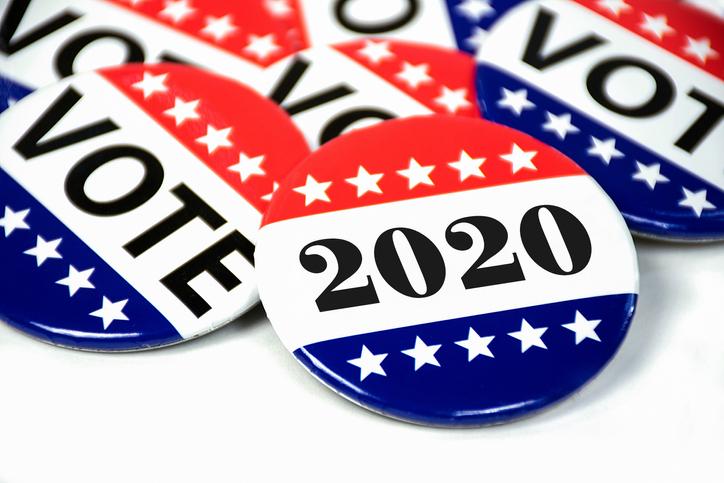It seems that just yesterday there were 28 candidates for the Democratic Presidential Candidate race. In the past few months, weeks and even days, the competition has been whittled down to just two viable candidates. Currently, Former Vice President Joe Biden and Senator Bernie Sanders are very close in number of delegates needed to clinch the nomination.
The Democratic National Convention is slated for July 13 – 16, 2020, in Milwaukee, Wisconsin. At that point, the winning candidate will need to have at least 1,991 of the 3,979 delegates pledged in order to claim the nomination of the party, according to NBC News.
Whatever happens as we near July, one of these men will be the candidate that faces off against President Trump in November. With that, let's see how these candidates compare on issues like tuition increases and student loan debt. Their views now will help to shape the platform that we’ll all be considering in the fall.
President Obama and Vice President Joe Biden championed free community college during Obama’s Presidency, and ever since his terms were completed, the Bidens have continued their efforts on this front. Through their encouragement, hundreds of community colleges across the country have begun to offer tuition-free programming, according to joebiden.com.
Biden also wants to build up resources at community colleges for current students. His website states that this includes reforms for “academic and career advising services; dual enrollment; credit articulation agreements; investing in wages, benefits, and professional development to recruit and retain faculty, including teacher residencies; and improvements to remediation programs.”
Included in Biden’s proposal for investing in community colleges is an investment of sorts, in the students that attend these schools. He wants to provide wraparound services for students that may need help in school and out of school. In addition to reforming the Pell Grant to cover costs beyond tuition, Biden wants to invest in resources that come alongside students to help them to succeed, providing funding for textbooks, transportation, child care and mental health services.
In addition to community colleges, Biden wants to invest $50 billion in high-quality training programs. This will help students receive certifications, apprenticeships and partnerships to begin working in sectors that need capable individuals, trained for that specific role.
Lastly, the Bidens want to devote $8 billion into new facilities and technologies for community colleges.
Make College More Affordable
In order to make college more affordable to more students, Biden has proposed to double the maximum amount of the Pell Grant, which is currently maxed out at $6,345, as well as allow more Americans to qualify for the grant.
He plans to make improvements to the income-based repayment plan. First, borrowers who make $25,000 or less will not have to make any payments on their student loans, and the loans will not accrue any interest until they make at least that amount per year. Borrowers will also only be required to pay 5% of their income. After 20 years, the remaining balance will be forgiven.
For those serving in public jobs, Biden wants to extend student loan debt forgiveness. His campaign offers to provide $10,000 in debt relief for every year in a public service job, up to five years.
Just like at community colleges, Biden hopes to provide wraparound services for students at colleges and universities across the country to better set them up for success. He also hopes to encourage work study programs to provide work study jobs that students could actually use; helping them to help build up their resumes and train them for real job opportunities.
Finally, according to his website, Biden wants to stop for-profit colleges and private student lenders from negatively profiteering off of off of students.
Support HBCUs, TCUs and MSIs
To round out his higher education plan, Biden wants to provide federal support to Historically Black Colleges and Universities (HBCU), Tribal Colleges and Universities (TCU) and Minority Serving Institutions (MSI).
The Biden plan will invest $18 billion into grants in order to allow low-income students to attend college tuition free for two years at these institutions. He also wants to create centers of academic excellence that will connect students at these institutions to underrepresented fields with a $10 billion grant, as well as provide $20 billion in grant money to update tech labs, facilities and digital infrastructures.
The former Vice President wants to complete his federal support of these schools with a $10 billion grant that will provide programming to increase enrollment, retention, completion and unemployment rates for minority students. Lastly, he will invest $5 billion in graduate school pathways to ensure minority graduates work in fields like teaching, health care and STEM.
Democratic Candidates Make Promises on Higher Education, Student Loan Debt

The candidates begin casting their vision for college and beyond.
